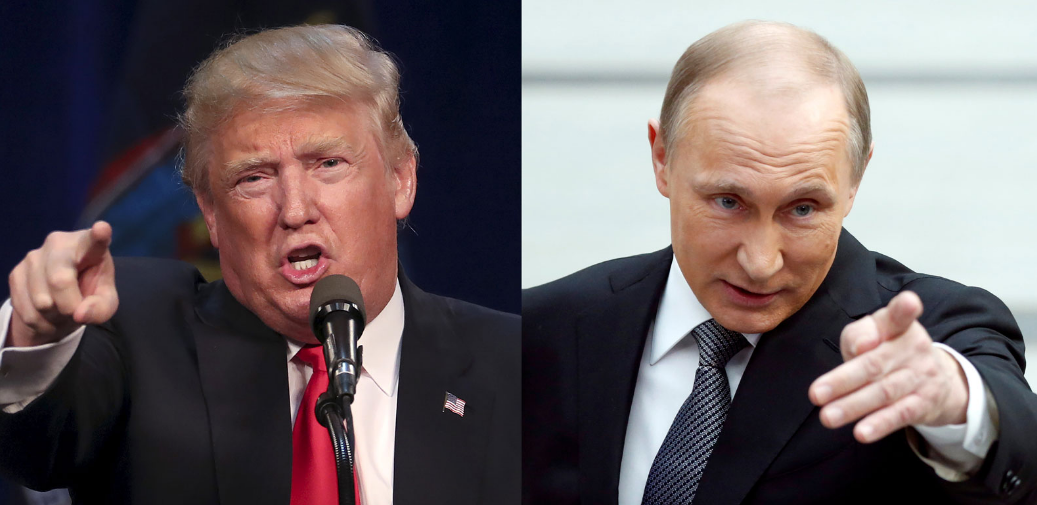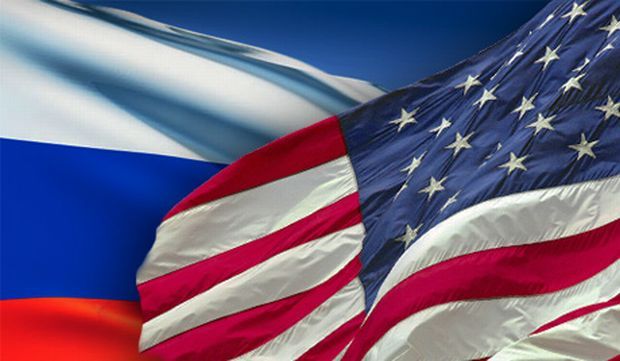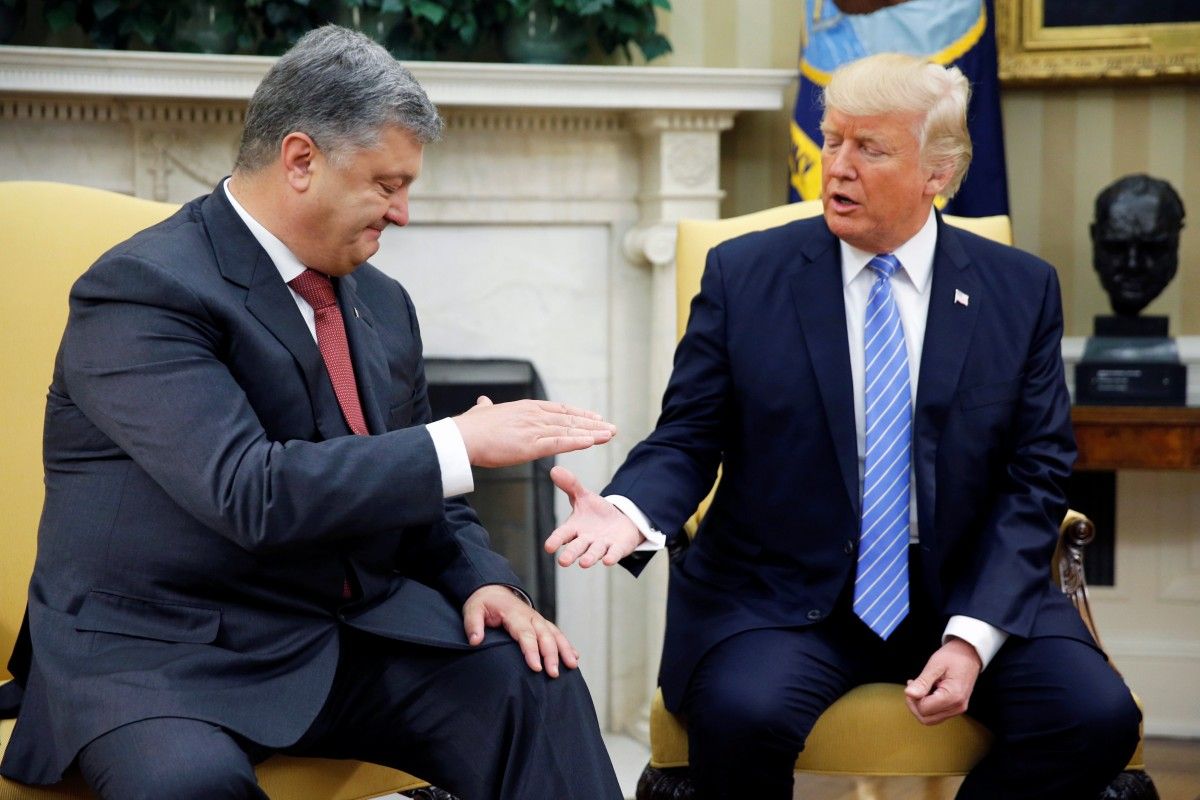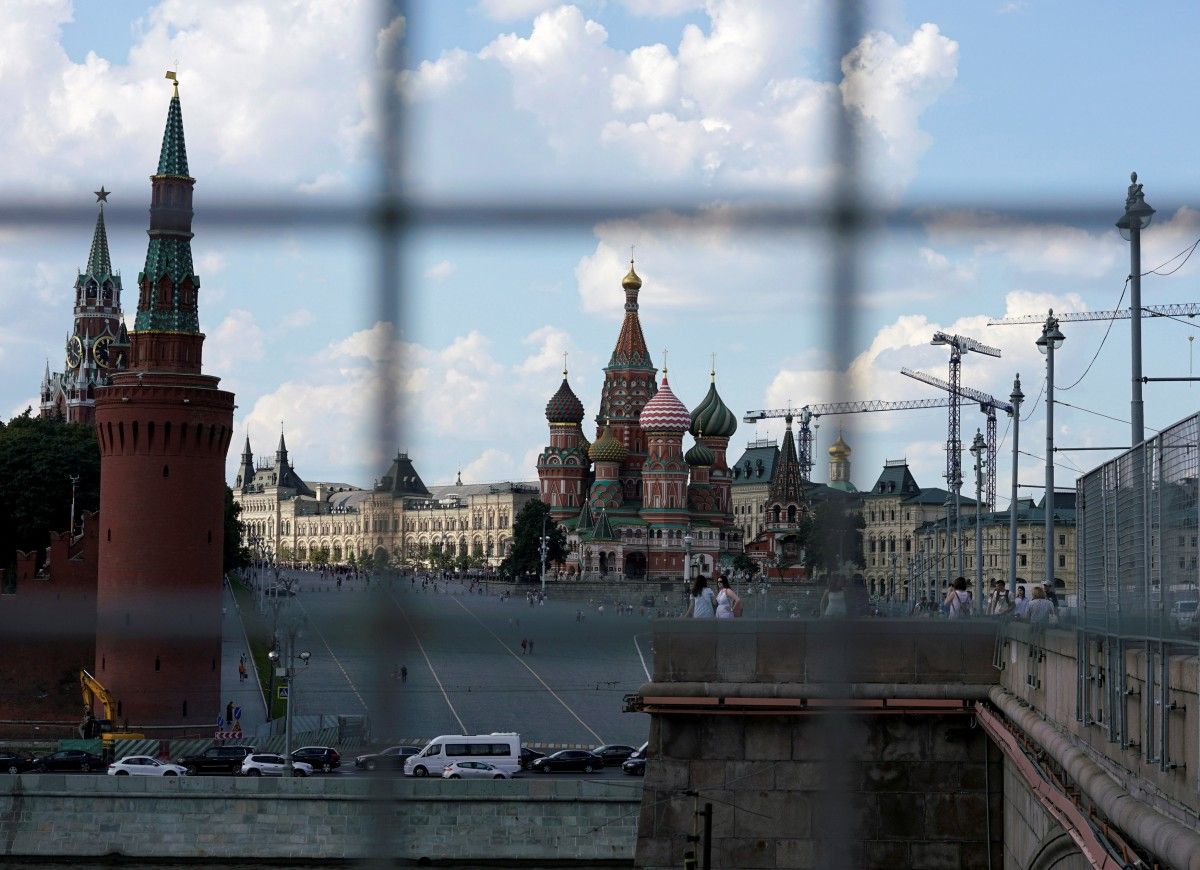
Trump and Putin: "Reset" or final break-up?
On the sidelines of the G20 summit in Hamburg July 7, a meeting of the presidents of the United States and Russia has been announced. While the Kremlin is struggling to present the talks as a landmark event, Trump has already sent quite an unpleasant signal to Putin in his appeal to cease Russia’s “destabilizing activities in Ukraine and elsewhere."
On the eve of the visit of the U.S. and Russian leaders to Hamburg, where the first meeting between Donald Trump and Vladimir Putin is scheduled, Kremlin press secretary Dmitry Peskov told reporters that it would be held in the format of a separate conversation - a "full sitting meeting" is planned, rather than a brief contact. According to the Kremlin, the agenda will include the fight against international terrorism, the issues of Syria and Ukraine, as well as disarmament. UNIAN has asked Russian, Ukrainian, and Western experts whether such a "truncated summit" can contribute to the Donbas settlement and whether a "grand deal" between Washington and Moscow is possible.
Different interests and dangerous rapprochement
Despite Putin's administration bravado in their attempts to represent the upcoming meeting as the one at the "peer to peer" level, it works, perhaps, only on Russian information consumers. On the one hand, the very fact of a full-fledged bilateral meeting, where delegations will be sitting before each other, is already deemed as a kind of symbolic victory for Putin. On the other hand, this is also Donald Trump’s personal victory over the U.S. Congress and over the majority of members of his own Cabinet who have recommended that the U.S. president confine himself to some brief hallway meeting, as Obama had with Putin the latest time the leaders of the two powers met in person. "Trump again and again shows his longing to Putin, which can’t be explained rationally, and a desire to somehow meet half-way with him," said Andrei Piontkovsky, a Russian publicist, adding that in terms of content, Trump will fail to continue this line of concessions.
This is due, in particular, the discrepancy between Trump’s personal aspirations and those of the American political elite. "He understands that refusal from sanctions imposed late last year by Obama when the latter drove Russian diplomats (read “intelligence operatives”) from the two mansions in Maryland and New York, or some serious "deals" on Syria and Ukraine in the current political atmosphere that prevails in Washington are simply impossible and will constitute a political suicide for him," the expert says.
Indeed, the political elites of both countries understand and recognize the fact that despite Trump's weird attraction to Putin, the strategic interests of the U.S. and Russia just do not coincide, while it is even difficult to reach compromise on some issues where common interests exist.
Lilia Shevtsova, a Russian political scientist and Doctor of Historical Sciences, shares this opinion. According to her, Trump and Putin will try to go beyond the symbolism of their meeting and pretend they are starting a new chapter in bilateral relations.
Everything is quite simple with Putin. Moscow's intentions and goals are clear: to get out of isolation and resume "bipolarity," because relations with the U.S. are the base of Russia’s foreign policy and confirmation of its "status." But no one dares say for sure what exactly Trump is trying to achieve. "What’s the model of his ‘deal’? Unless something unimaginable happens, they both can say that they have come to an understanding. But predicting Trump’s behavior is always in vain. His is the man driven by impulses and wild ignorance in foreign policy," Shevtsova argues.
According to her, Putin is much more experienced and skillful than Trump, and can even impose on him the course of discussion of some issues to which Trump's team will not be ready (although there are plenty of levers to get the U.S. president back on the right track). "Therefore, any attempt to "normalize relations," which both presidents seek, will soon bring to the surface a deep gap in interests," the expert stresses.
Moreover, in her opinion, it may so happen that Putin and Trump during their actual meeting "will not like each other": "It is possible and even most likely to be the case..."
In this regard, the upcoming meeting between Trump and Putin cannot become a turning point in the relations between the two states, or change the logic of these relations. Moreover, it is unlikely that the two leaders will raise a number of issues sensitive for both, in particular, the one of the Russian interference in the U.S. presidential election.

Head of Da Vinci AG analytical group Anatolii Baronin notes that to date, Trump is rather limited in the possibilities of rapprochement with Russia against the background of Russia ties accusations against his team. According to him, any sufficiently noticeable steps aimed at a "thaw" in U.S.-Russia relations would be dangerous for Trump administration. Besides, the expert says no one can claim definitely that Russia is ready to make an effort to facilitate the easing of the U.S. stance: "Now Moscow is not showing a single step that would allow the U.S. to change its position in bilateral relations."
According to Baronin, Putin will not be able to offer Trump anything that would allow the U.S. to alter its position and, at the same time, allow the Russian president to "save face" before his own people. As of today, internal political bids are more important for the Russian leader than relations with international players. "Both the Crimea annexation, war in Donbas, military operation in Syria, and confrontation with the U.S. and NATO member states - all this Russian policy is focused on the formation of a certain ideologeme for the internal consumption. Russia’s foreign policy is secondary, while primary remains the strengthening of power, formation of an unshakeable vertical, exclusion of civil protest, and internal propaganda that would “kill” any public aspirations toward change in political leadership," the expert says.
In this regard, Putin cannot make concessions, including within the framework of the Minsk process, to really change relations with the United States. That’s because, if the Russian president does so, this will downgrade his image in the eyes of ordinary Russians. At the same time, it would be naïve and dangerous to hope that one meeting can change the U.S. policy. "The system of checks and balances in the U.S is so strong that even if the administration sways, the position of the Congress will maintain pressure on the Kremlin," Baronin added.
Donbas in focus
Ukraine will undoubtedly be one of the most unpleasant topics for discussion during the announced meeting. The U.S. President has already sent an unpleasant signal to his Russian counterpart during his July 6 speech in Warsaw, urging Russia "to cease its destabilizing activities in Ukraine and elsewhere."
The reason for this rhetoric is not only the risk and fear of demonstrating excessive loyalty to Putin during the meeting on the sidelines of the G20 summit, but also the fact that the United States, to date, is taking an active stance in supporting Ukraine. And this trend is seen in the ranks of both the Democrats and Republicans.
In addition, we should not discount that Trump's talks with Ukrainian President Petro Poroshenko took place ahead the U.S. president’s meeting with Putin. And, it is quite probable that this has laid certain winning positions for Ukraine, since Trump may now be able to perceive Putin's rhetoric, in particular, about the "civil conflict in Ukraine" through the prism of information previously received from Poroshenko.
According to Lilia Shevtsova, the fact that Poroshenko met with Trump before Putin is not a consequence of Trump’s conscious policy and intentions but rather of a combination of circumstances. First of all, it is the result of the anti-Russian consolidation in Washington and the position of Trump team of security officials, who are trying along with State Secretary Rex Tillerson to prevent Trump's hypothetical warm embrace with Putin. At the same time, the Russian political scientist is convinced that we should pay tribute to the diplomatic efforts by Kyiv, since the very fact of the Trump-Poroshenko meeting has been really symbolic. Although, experts are convinced this will give no impetus whatsoever to the Donbas settlement.

In particular, according to Shevtsova, first of all, an understanding on part of the American side is needed of what exactly is required to be done in this direction. Secondly, the Kremlin’s willingness to pursue in this direction is a must. Thirdly, Washnigton will need to coordinate its position with Kyiv and the two guarantors of Minsk agreements - Berlin and Paris. "Trump may decide to involve the U.S. in the settlement process, although conditions for this are not present at the moment. But, in any case, Washington’s transition from the position of indifference to the position of involvement will be a positive step, I believe," Shevtsova stressed.
Former U.S. Ambassador to Ukraine, now a Brookings Institution expert Steven Pifer also notes that Trump needs to offer a more pro-active U.S participation in advancing the prospects for the Donbas conflict settlement, although there is little evidence that the Kremlin actually seeks settlement at this stage. At the same time, Pifer believes that Donald Trump could confirm Tillerson's words addressed to Lavrov, that the Ukrainian-Russian conflict is a serious obstacle to the improvement of U.S.-Russia relations, and remind Putin that Russia sanctions will remain in place until Russia fulfills its obligations under the Minsk agreements.In particular, according to Shevtsova, first of all, an understanding on part of the American side is needed of what exactly is required to be done in this direction. Secondly, the Kremlin’s willingness to pursue in this direction is a must. Thirdly, Washington will need to coordinate its position with Kyiv and the two guarantors of Minsk agreements - Berlin and Paris. "Trump may decide to involve the U.S. in the settlement process, although conditions for this are not present at the moment. But, in any case, Washington’s transition from the position of indifference to the position of involvement will be a positive step, I believe," Shevtsova stressed.
Dreams of "Grand Deal"
All mentioned contradictions show that at this stage, no mutual understanding in a broader sense can emerge between Russia and the U.S. According to Dennis J. Dunn, Professor of History and director of international studies at Texas State University, the main obstacle is ideology. He suggests that the Russian government (not the people) is opposed to the Western-dominated international order and the U.S. is led by a man who is largely uninformed about history and the evolution and significance of the global civilization that is largely based upon Western values.
Russian political scientist Andrei Piontkovsky shares these thoughts: "The Russian Federation sincerely believed that it was possible to recruit one not really smart guy, put him up for presidency and then "steer" the United States and divide the world with them. But it turned out that the American political system, thanks to the founding fathers, has been acting quite differently for more than 200 years: there is a separation of powers, there is a judicial, legislative branch, there are powerful media, and there is no way some deals could be concluded now."
In turn, head of Da Vinci AG analytical group Anatolii Baronin explains that any "grand deal" is possible in the event that the interests of both parties are commensurate. However, in the U.S.-Russia relations, this is far from true.
"The U.S. interest lies solely in possible investment or trade operations. But if we analyze the level of trade between Russia and the U.S., we will see that the amount is rather small, so there are no economic instruments and there is no significant economic interest that can form grounds for a "grand deal," Baronin said.

"The deal should mean the exchange of concessions," says Lilia Shevtsova. “And what does the Kremlin want? First of all, the recognition of ‘spheres of interest’ in the post-Soviet space, limited sovereignty of Ukraine, the West's rejection of Russia sanctions, the U.S. return to bilateral discussions of ‘global challenges,’ the refusal from NATO’s further expansion... Finally - and this is important – Russia wants to secure its right to its own interpretation of international principles. It is actually about the destruction of the liberal world order and the U.S. surrendering its global position."
What can Trump get in return? Is it Exxon Mobile's access to the development of Russian deposits? It is unlikely that such a deal could interest the U.S. president. It would be far too unequal.
A political scientist, Professor at the Peace Research Institute (Oslo) Pavel Baev is absolutely convinced that there is no hope for positive changes in the deteriorating relations regardless of any meetings. "The roots of the conflict between the U.S. and Russia have become too deep and are actually spreading rapidly. Russia has too little to offer the U.S. and its [Russia’s] ability to influence key global processes is low and continues to decline ... At best, from this meeting we can expect some improvement in control over growing tensions," he states.
Moreover, the expert believes that on July 7, some “bad chemistry” could shape between the interlocutors, against the background of a huge number of negative factors around the event.
Kostyantyn Honcharov

